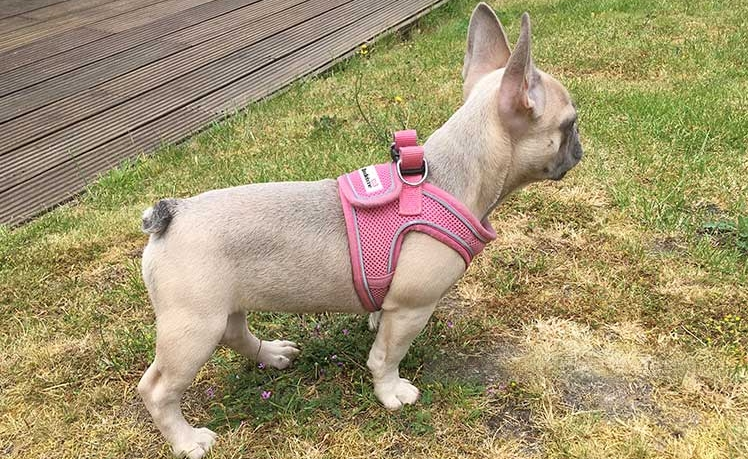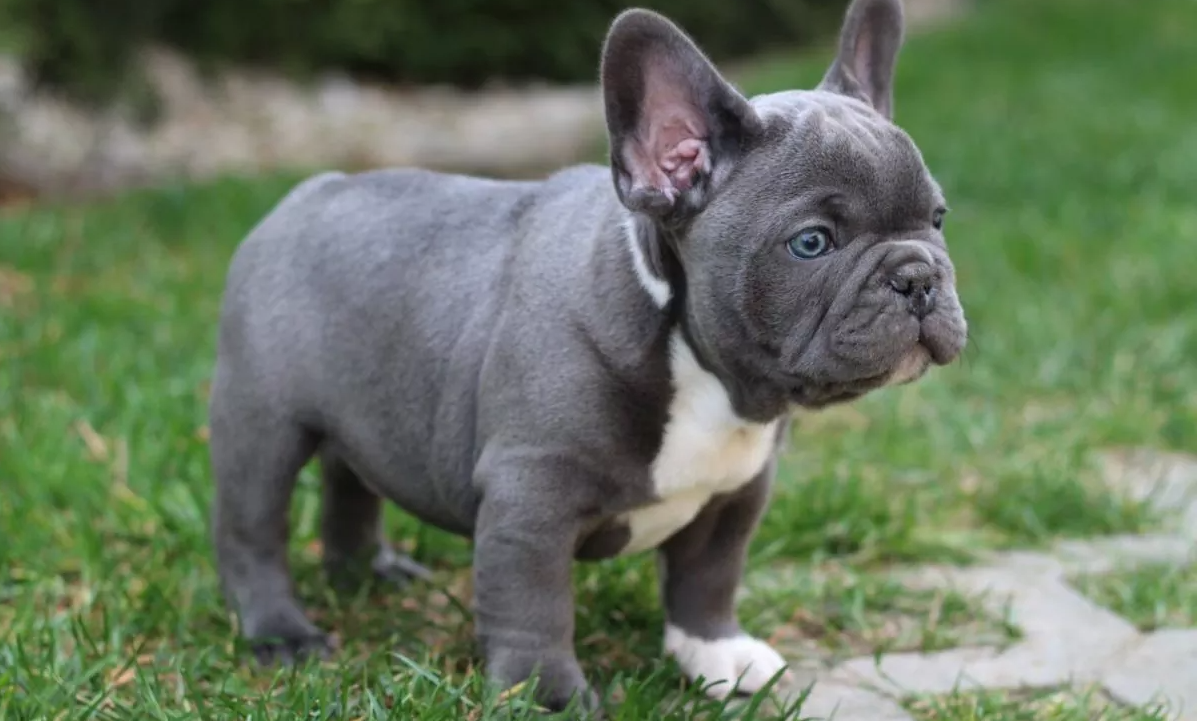French Bulldogs are one of the world’s most beloved breeds of dogs. They are known for their outgoing personalities and their loyal companionship. But can a French Bulldog give birth naturally? The answer is yes, but it is not without risks and complications. French Bulldogs are a brachycephalic breed and can have difficulty giving birth due to their short faces. In addition, the size of their heads and the shape of their bodies can make it difficult for puppies to pass through the birth canal.
French Bulldogs often require a C section to deliver their babies safely. Although risks are associated with natural birth, many French Bulldogs have successfully given birth without complications if they are healthy and well cared for. With the right care, a French Bulldog can give birth naturally and provide its puppies with a safe and comfortable environment.
Do French Bulldogs Have the Ability to Give Birth Naturally?
Yes, French Bulldogs do have the ability to give birth naturally. While it’s true that they can be difficult to breed due to their small size and narrow hips, they can and do give birth without medical intervention. When breeding French Bulldogs naturally, the most important thing to remember is to ensure the female is in good health and has a wide enough pelvis for the puppies to pass through.
In addition, it’s important to note that French Bulldogs are usually quite prone to difficult births, so it’s best to work with an experienced breeder or veterinarian to ensure a successful birthing experience. It is especially important if you plan on breeding your dog yourself.
Understanding the signs of a difficult birth is important, as this can help you intervene quickly. Signs of a difficult birth include prolonged labor (more than a few hours), excessive panting, straining, and restlessness. If you notice any of these signs, contact your vet immediately.
Finally, French Bulldogs are prone to Cesarean sections due to their small size and narrow hips. If you are working with a breeder or vet and a Cesarean section is recommended, it is important to understand that this can be a safe and effective way to help your French Bulldog give birth.
What Causes French Bulldogs to Experience Problems with Natural Birth?
French Bulldogs are one of the more popular dog breeds, but unfortunately, they often struggle to give birth naturally due to several problems, including their large heads and small frames. It can be especially dangerous for the mother and her puppies, as exhaustion and even death for either could occur due to overly difficult labor. Knowing this, some breeders opt for cesarean sections or artificial insemination methods to mitigate the risks of a natural birth while attempting to produce the same desirable results.
Hopefully, with responsible breeding tactics, French Bulldogs can continue to electrify crowds with their head-tilting personalities while being protected from unnecessary dangers caused by possible difficulties in giving birth naturally.
What are the Indicators of a French Bulldog Going into Labor?
French bulldogs will begin showing signs of labor roughly two days before giving birth. As the due date draws nearer, the puppy’s mother should be encouraged to rest. Increased activity and decreased eating habits could indicate she is approaching labor. When the female is a few hours away from delivering puppies, she may become uncharacteristically vocal and appear very uncomfortable. Her temperature will drop as this is an indication that labor is near.
Also, look for any discharge or bleeding. Some French Bulldogs may also use their mouth to try to “nest” by moving objects or fluffing up blankets close to them as they prepare for their delivery. Pay attention to your pet’s behaviors during this crucial pregnancy stage, and ensure you have everything prepared to help her through labor successfully if needed.
What are the Possible Complications During Natural Birth?
The natural process of giving birth comes with various possible complications, including labor that either starts too early or is prolonged, the baby being in an irregular position, abnormal fetal heart rate, and umbilical cord issues, which may lead to oxygen deprivation.
These complications can increase the risk of permanent damage to both mom and baby or lead to unfortunate circumstances such as stillbirths. It is important for soon-to-be mothers to be aware of all the risks involved in the natural birth process to make well-informed decisions regarding their pregnancy and who will deliver them.
Anasarca
Anasarca is a medical condition in which the body tissues hold excess fluid, causing swelling throughout the body. This can happen when other systems within the body are not balanced. For example, when heart or kidney failure causes increased pressure in the veins, it leads to Anasarca. This can also happen if toxins, like medications and poisons, are ingested, as this causes a fluid imbalance in the body’s cells. Additionally, infection-causing illnesses such as severe malnutrition, septicemia and malaria can all lead to Anasarca.
Treatment for Anasarca varies but typically includes addressing the underlying causes and treating symptoms like pain and infections. Identifying and treating these underlying medical issues quickly is important to prevent complications due to Anasarca.
Dystocia
Dystocia, derived from the Greek words meaning ‘difficult’ and ‘birth,’ is a condition that represents difficulty in labor. It can be caused by some factors, including fetal malposition, inadequate uterine activity, abnormally large fetuses, or weakness of the pelvic muscles.
In some cases, dystocia is identified prenatally during an ultrasound examination when there may be risk factors like disproportion between the size of the fetus and the mother. It is not just the size but also other variables, such as inadequate amniotic fluid, breech positioning and bowels, that can cause labor to become difficult or slow progressions. As such, a diagnosis must consider all maternal and fetal variables for proper management to alleviate any potential risks associated with this condition.
Do French Bulldogs Always Require a C Section?
French Bulldogs are members of the oldest dog breed and have distinct characteristics such as their particular head shape and square-shaped body. Commonly, French Bulldogs have narrow hips and relatively large heads, making labor and delivery difficult due to an unlucky combination of a small birth canal with a large head. This disproportion can lead to complicated births, which have the potential to end in the death of the mother or pup or both. As a result of these complications, Cesarean sections, otherwise known as C sections, are often recommended by veterinarians for French Bulldogs as a safe alternative to traditional delivery.
Despite modern medical technological advancements and more experienced personnel handling C section surgeries for dogs, it is not without its risks – both during surgery and post-op – however, this form of uterine intervention is typically regarded as advantageous for a healthy outcome for both mother and puppies.
What is the Average Litter Size of a French Bulldog?
French Bulldogs are known for being playful and friendly companion animals, but another well-known trait of these dogs is their smaller litter sizes. On average, an adult female will produce a litter of 2 to 4 puppies, though it is possible for the litter size to be larger or smaller than this range. Most French Bulldogs will not exceed eight total offspring in one litter. In some cases, particularly when the mother is younger or older than usual, it is preferable to have a smaller litter size with fewer complications as the mother gives birth. According to breeders, a healthy female between two and three years of age generally produces the best results.
Verdict
Although there isn’t sufficient scientific evidence to support the assertion that French bulldogs are capable of natural birth, there is ample anecdotal evidence to indicate that it could be possible. Suppose you intend to breed your French bulldog; thoroughly research beforehand. Seeking guidance from a veterinarian is your best option for ensuring your dog’s well-being.



